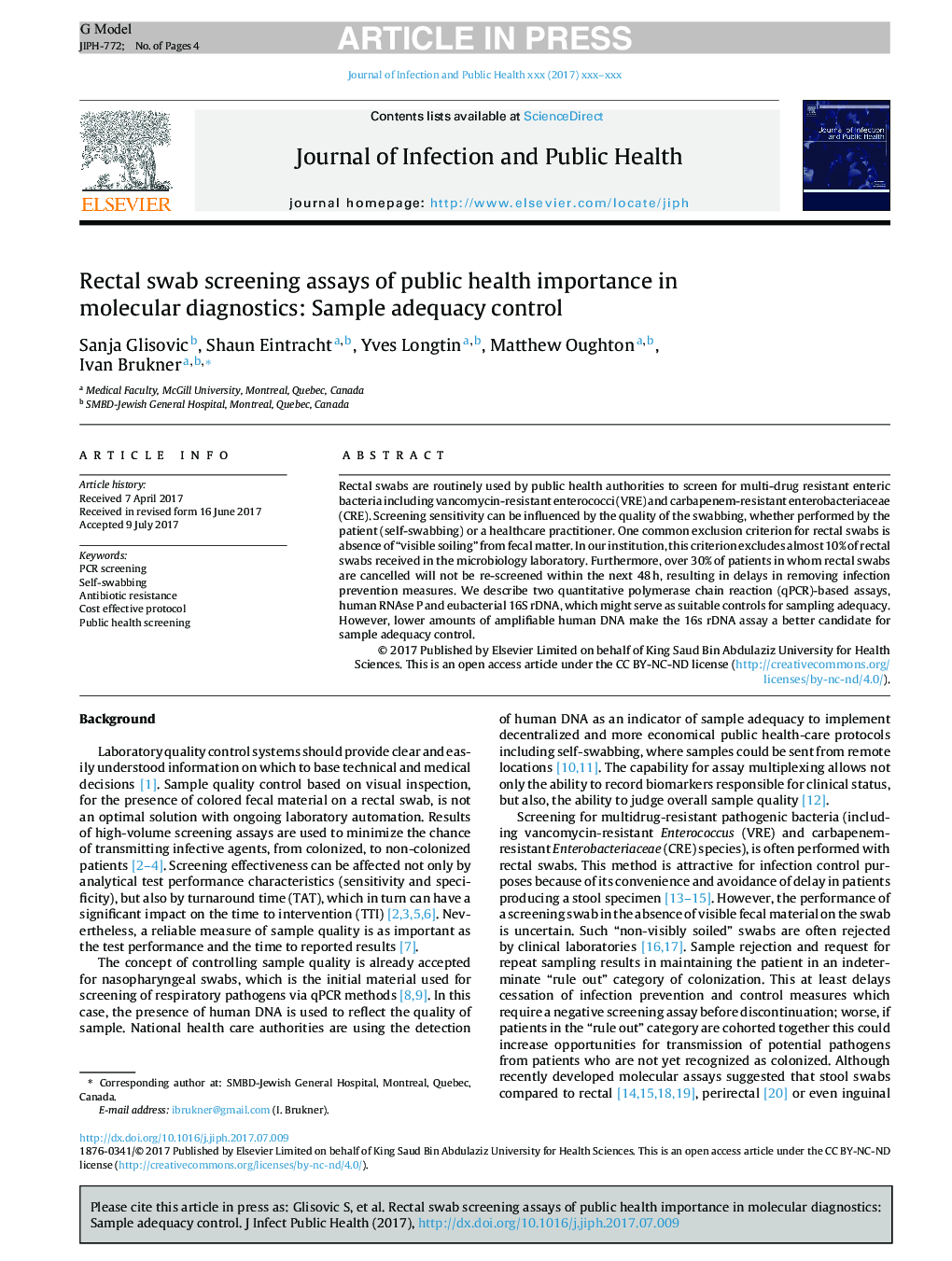| Article ID | Journal | Published Year | Pages | File Type |
|---|---|---|---|---|
| 8746807 | Journal of Infection and Public Health | 2018 | 4 Pages |
Abstract
Rectal swabs are routinely used by public health authorities to screen for multi-drug resistant enteric bacteria including vancomycin-resistant enterococci (VRE) and carbapenem-resistant enterobacteriaceae (CRE). Screening sensitivity can be influenced by the quality of the swabbing, whether performed by the patient (self-swabbing) or a healthcare practitioner. One common exclusion criterion for rectal swabs is absence of “visible soiling” from fecal matter. In our institution, this criterion excludes almost 10% of rectal swabs received in the microbiology laboratory. Furthermore, over 30% of patients in whom rectal swabs are cancelled will not be re-screened within the next 48Â h, resulting in delays in removing infection prevention measures. We describe two quantitative polymerase chain reaction (qPCR)-based assays, human RNAse P and eubacterial 16S rDNA, which might serve as suitable controls for sampling adequacy. However, lower amounts of amplifiable human DNA make the 16s rDNA assay a better candidate for sample adequacy control.
Keywords
Related Topics
Health Sciences
Medicine and Dentistry
Infectious Diseases
Authors
Sanja Glisovic, Shaun Eintracht, Yves Longtin, Matthew Oughton, Ivan Brukner,
